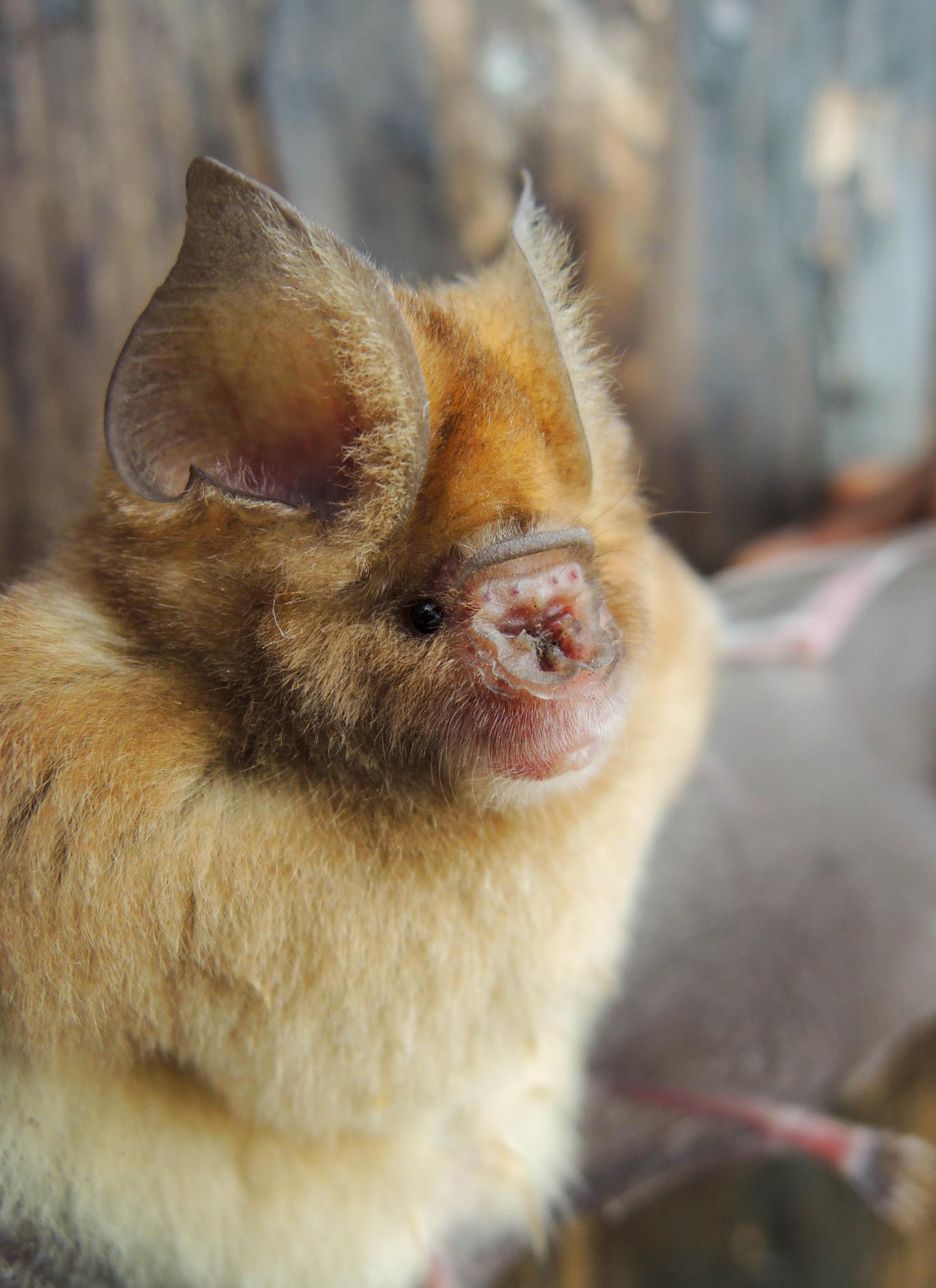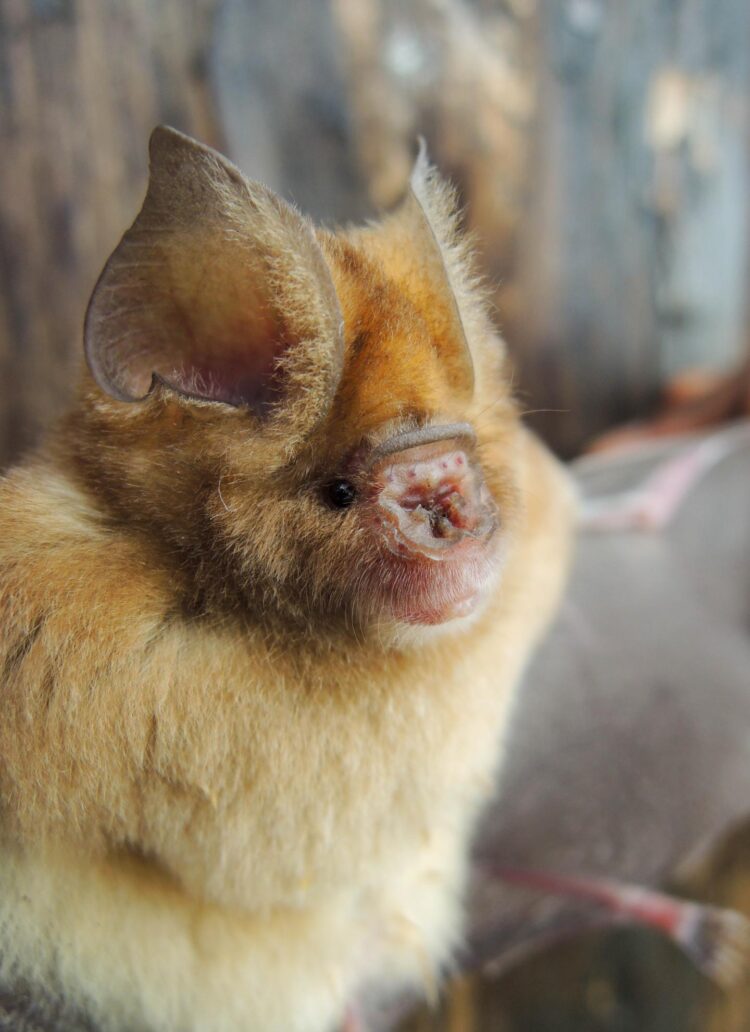
Credit: B. D. Patterson / Field Museum
Newly published findings about the phylogenetics and systematics of some previously known, but also other yet to be identified species of Old World Leaf-nosed bats, provide the first contribution to a recently launched collection of research articles, whose task is to help scientists from across disciplines to better understand potential hosts and vectors of zoonotic diseases, such as the Coronavirus. Bats and pangolins are among the animals already identified to be particularly potent vehicles of life-threatening viruses, including the infamous SARS-CoV-2.
The article, publicly available in the peer-reviewed scholarly journal ZooKeys, also pilots a new generation of Linked Open Data (LOD) publishing practices, invented and implemented to facilitate ongoing scientific collaborations in times of urgency like those we experience today with the COVID-19 pandemic currently ravaging across over 230 countries around the globe.
In their study, an international team of scientists, led by Dr Bruce Patterson, Field Museum’s MacArthur curator of mammals, point to the existence of numerous, yet to be described species of leaf-nosed bats inhabiting the biodiversity hotspots of East Africa and Southeast Asia. In order to expedite future discoveries about the identity, biology and ecology of those bats, they provide key insights into the genetics and relations within their higher groupings, as well as further information about their geographic distribution.
“Leaf-nosed bats carry coronaviruses–not the strain that’s affecting humans right now, but this is certainly not the last time a virus will be transmitted from a wild mammal to humans,” says Dr Terrence Demos, a post-doctoral researcher in Patterson’s lab and a principal author of the paper. “If we have better knowledge of what these bats are, we’ll be better prepared if that happens,” he adds.
“With COVID-19, we have a virus that’s running amok in the human population. It originated in a horseshoe bat in China. There are 25 or 30 species of horseshoe bats in China, and no one can determine which one was involved. We owe it to ourselves to learn more about them and their relatives,” comments Patterson.
In order to ensure that scientists from across disciplines, including biologists, but also virologists and epidemiologists, in addition to health and policy officials and decision-makers have the scientific data and evidence at hand, Patterson and his team supplemented their research publication with a particularly valuable appendix table. There, in a conveniently organized table format, everyone can access fundamental raw genetic data about each studied specimen, as well as its precise identification, origin and the natural history collection it is preserved. However, what makes those data particularly useful for researchers looking to make ground-breaking and potentially life-saving discoveries is that all that information is linked to other types of data stored at various databases and repositories contributed by scientists from anywhere in the world.
Furthermore, in this case, those linked and publicly available data or Linked Open Data (LOD) are published in specific code languages, so that they are “understandable” for computers. Thus, when a researcher seeks to access data associated with a particular specimen he/she finds in the table, he/she can immediately access additional data stored at external data repositories by means of a single algorithm. Alternatively, another researcher might want to retrieve all pathogens extracted from tissues from specimens of a specific animal species or from particular populations inhabiting a certain geographical range and so on.
###
The data publication and dissemination approach piloted in this new study was elaborated by the science publisher and technology provider Pensoft and the digitisation company Plazi for the purposes of a special collection of research papers reporting on novel findings concerning the biology of bats and pangolins in the scholarly journal ZooKeys. By targeting the two most likely ‘culprits’ at the roots of the Coronavirus outbreak in 2020: bats and pangolins, the article collection aligns with the agenda of the COVID-19 Joint Task Force, a recent call for contributions made by the Consortium of European Taxonomic Facilities (CETAF), the Distributed System for Scientific Collections (DiSSCo) and the Integrated Digitized Biocollections (iDigBio).
Original source:
Patterson BD, Webala PW, Lavery TH, Agwanda BR, Goodman SM, Kerbis Peterhans JC, Demos TC (2020) Evolutionary relationships and population genetics of the Afrotropical leaf-nosed bats (Chiroptera, Hipposideridae). ZooKeys 929: 117-161. https:/
Contacts:
Dr Bruce D. Patterson, Field Museum
Email: [email protected]
Prof Lyubomir Penev, founder of ZooKeys and founder and CEO at Pensoft
Email: [email protected]
Media Contact
Bruce D. Patterson
[email protected]
Related Journal Article
http://dx.





